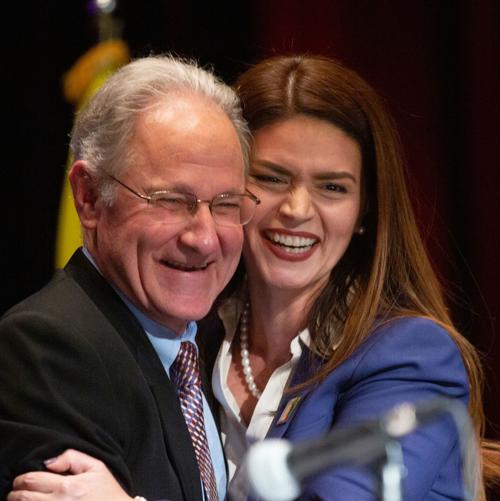A relatively new state law is likely going to extend the terms of the mayor of Tucson and the rest of the City Council by another year, going from four-year terms to five years.
The city-run, mail-in general election in November didn’t get enough voter participation, failing to meet the stringent requirements of a new state law that would require cities like Tucson to hold their elections for mayor and council members on even-numbered years.
The city appears to be preparing to challenge the law in court, but a change would affect the mayor’s and council members’ terms.
For example, newly elected Mayor Regina Romero would, under the current election system, serve until December 2023. But under the new state law, Romero and the other three Democrats elected to the City Council last month would serve an extra year, to the end of 2024. The three members of the City Council elected in 2017 would also be asked to served an additional year, ending their terms in 2022 rather than 2021.
An analysis by city election officials estimates the November election, which included two ballot propositions, failed to meet the turnout threshold set by the state law by more than 10,000 voters.
The law passed in 2018 by the Republican-controlled Legislature seeks to reduce the drop in voter participation on off-year elections held by cities and towns, sometimes called “ballot fatigue.”
The measure requires that the number of people who go to the polls in a jurisdiction during the local primary and the general election on odd-numbered years cannot drop by more than 25% when compared to the same elections held when statewide elections are held — which are always in even-numbered years.
Roughly 97,000 registered voters — about 37% — participated in the Tucson election last month. In the 2018 elections, the figure for city voters participating was estimated to be closer to 67%.
On Tuesday, Romero said she wanted the council to discuss the issue with City Attorney Mike Rankin in an executive session next month, signaling a court challenge of the law is likely.
City voters have already rejected a ballot measure that would have moved the city to even-number-year elections.
Forcing Tucson to change its election system would go against the city charter, which currently sets the schedule for when elections are held.
Some argued that putting city races on the same ballot where voters would be asked to vote for members of Congress and the president is a mistake, as it makes it harder for voters to pay attention to local issues.
In 2018, Mayor Jonathan Rothschild predicted the city would end up in court over the issue.
“I would expect that we will receive a notice from the Arizona Attorney General threatening to withhold Tucson’s portion of state-shared revenue (more than $100 million annually) until we move our elections to even years,” Rothschild said in a guest opinion in the Arizona Daily Star.
Rankin is optimistic the city would prevail in a legal challenge, saying courts have historically sided with local jurisdictions in similar legal fights.
Rankin has been successful in the past, convincing the high court to strike down legislative attempts to tell cities how and when to run their elections.
State Sen. J.D. Mesnard, who helped write the bill, disagrees. He says voter turnout is statewide issue.
The Chandler Republican said the new law was specifically written to address voter fatigue and he was confident the state would prevail if Tucson went to court over the issue.
A voter approved, half-cent sales tax dedicated to paying for street improvements and public safety equipment will sunset if the city moves its elections to even-numbered years.
The tax generates about $50 million annually for the city, with about $20 million going into street repairs and $30 million used to buy new vehicles, build new stations and buy vital equipment for first responders.
Passed in May 2017, Prop. 101 is set to expire in 2022, likely in mid-year, although some city officials were considering asking voters in 2021 to extend the program.
The voter-approved tax would stop being collected for a period of time before voters would be given a chance to weigh in on renewing it in November 2022. It is unclear whether the City Council would be willing to ask for the renewal next year, especially if there is a protracted legal battle with the state over when local elections should be held.





